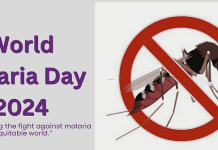To continue to make medicines available and affordable for Nigerians, despite the current constraints in importation of pharmaceutical raw materials and finished products, Indian Pharmaceutical Manufacturers and Importers in Nigeria, IPMIN, and the Association of Industrial Pharmacists of Nigeria, NAIP, have called on the federal government to exempt their members from tax payment for the years 2020 and 2021, as well as removal of all tariffs on pharmaceutical raw materials and finished products.
Speaking with Pharmanews in separate interviews on how the raging COVID-19 pandemic is affecting their members, President of IPMIN and managing director of Jawa Nigeria Ltd, Chief Varkey Verghese; and the National Chairman of NAIP, Pharm. Ignatius Anukwu, said they are in dire need of palliatives from government to aid quick recovery and survival of their businesses.

While the Indian pharmaceutical manufacturers and importers further requested the federal government to extend the deadline for the payment of 2019 tax, citing problems arising from delay in their shipments from India, the industrial pharmacists also asked for access to foreign exchange at the official rate, stating that they are currently buying at the market rates with all the volatility that comes with it.
The IPMIN president further said that since February when the Indian government restricted the exportation of certain antibiotics and vitamins, it has been a particularly difficult time for importers, as many of their goods in the process of importation were halted with duties running on them.
“There has been considerable delay in getting the raw materials and finished goods from India. There are two aspects to this. The first is that the lockdown in India has made the ports to slow down their operation. Also, the Indian government restricted the exportation of certain antibiotics and vitamins but now they have made some relaxation in giving export permit on a case-by-case basis and all these are delaying shipments”, Verghese lamented.
He further called on the government to “remove duty for all raw materials imported and VAT payable now on certain raw materials and packing materials.”
Aside from tax exemption, the Indian pharmaceutical manufacturers and importers have also urged the leadership of the National Agency for Food and Administration and Control (NAFDAC) to show more consideration in its registration processes for new products and renewal of existing products, stressing that this will foster ease of doing business in this COVID-19 era.
Emphasising the importance of local manufacturing of pharmaceuticals, he noted that the global pandemic has further awakened the consciousness of Indian importers to local manufacturing, revealing that some of them have commenced contract manufacturing with local manufacturers of essential drugs in the country.
He said: “This is a wake-up call for all concerned stakeholders in the pharma industry to look inward and produce locally and be self-sufficient. To this end, some of our members have already started doing contract manufacturing with existing local manufacturing companies rather than importing these items from India or other countries.”
Speaking in a similar vein, the NAIP national chairman stated that removal of tariffs on raw materials and essential pharmaceutical products will be of immense benefit to both the pharmaceutical companies and the entire citizenry.
“The government would be doing the citizenry a world of good by removing forthwith all tariffs on finished pharmaceutical products and raw materials for medicines in order to make medicines more affordable, especially at this time that earnings will be severely affected by the evolving situation. This will not only improve margins for the pharmaceutical companies but serve as a boost for many of them to quickly re-stock their products once their overseas suppliers resume operations. This will equally reduce the level of shortages that may be occasioned by the prevailing circumstance.
“Access to forex is also very crucial for pharmaceutical companies, as it has been stated that 70 per cent to 80 per cent of our essential medicines are imported, as well as all our raw materials. Therefore, access to forex by pharmaceutical companies at the official rate is key. At present, our members are buying at the current market rates with all the volatility that comes with it. This will eventually lead to higher prices of medicines. Also this thins-out the margins of the companies and challenges their sustainability. The CBN will help us more by selling forex to our members at the official rate,” Anukwu said.
He further mentioned other challenges of pharmaceutical manufacturers and importers, with particular emphasis on the huge debts owed them by government agencies and institutions.
“These debts run into billions of naira,” said the NAIP chairman. “Most of the time, the institutions that owe these monies cite poor funding by government as the reason for not paying. These are supplies for which they have made earnings for their institutions. Apparently, they have diverted the funds which should have been used for the payment of these supplies. This is negatively impacting the pharmaceutical companies and leading to poor remuneration and loss of jobs in the sector as many pharmaceutical companies have gone out of business because of this development. Government and these agencies should pay these debts.”
While applauding the federal government on the recently announced CBN intervention fund for the pharmaceutical industry, Anukwu disclosed that the association is however concerned about the interest rates announced on the fund.
He asserted that the association would need further clarification from the Central Bank as to what percentage the companies would be charged when the repayment falls due. This, he said, is because going by the apex bank’s announcement, the one-year period in which a five per cent rate is effective will elapse by 28 February 2021, after which the rate will revert to nine per cent.
“No company, to my knowledge, has obtained the loan yet. We would like to see a situation in which those who access the loan on or before February 28, 2021 would be allowed to repay it at five per cent. We hope that this will be addressed before the borrowers receive their repayment schedule. We believe that the CBN’s intervention will make a positive difference”, he remarked.
When asked if the association was into any partnership for the production of vaccines or other natural products to combat the lethal virus in the country, Anukwu explained that although there is a memorandum signed with Nigerian Pharmacists in Academia to pursue the commercialisation of products from indigenous research, the association’s research grant for the project, called the Nigerian Medicines Development Project, is too small to support research in vaccine development.
He said: “Research is a long-term commitment and research doesn’t just happen because there is COVID-19. It is only those countries who have the infrastructure, the funds and the scientists that will make the difference in a sustainable manner in vaccine development. In Nigeria, we have the scientists but almost no funding for research and very poor infrastructure. NAIP’s resources are too meagre for this scale of enterprise.
“Furthermore, none of the federal, state or private universities has a biosafety level (BSL)3 laboratory to conduct the requisite research on SARS-CoV-2, being a very virulent and highly contagious virus. Also, due to the high cost of research and development, I am not aware that any of the faculties of pharmacy or any of our members is working on any vaccine at the moment.
“The federal government has also not made any pronouncement as to making available any funds for research on COVID-19 to the Nigerian Institute for Pharmaceutical Research and Development (NIPRD) or to any of the faculties of pharmacy in the country.
“The only private and independent vaccine producing company I know in Nigeria is Biovaccines Nigeria Limited. I have not heard that they are carrying out any research on the development of vaccine for COVID-19. Vaccine production is highly technical and recomplex technology and requires not only huge funding but also a lot of time and commitment before getting a product ready for the market. Having said this, it is important to note that beyond vaccines, there are other efforts that are being explored in the prevention and treatment of COVID-19.
“Vaccines primarily confer immunity. However, the development of new molecules or the exploration of the activity of existing molecules against SARS-CoV-2 as well as researching the activity of herbal medicines on the prevention and treatment of COVID-19 are other veritable options.”
Speaking on steps being taken by members of the association in resolving their problems, Anukwu noted that, rather waiting for the government’s support as they had done over the years, they have, in recent times, decided to address these challenges a bit differently.
“We are mobilising our members and our resources towards the establishment of pharmaceutical manufacturing parks in Nigeria. This will provide a private-sector approach to coping with some of these challenges. In addition, this model is very likely to attract government’s interest and support when it becomes operational and successful,” he enthused.
In a related development, the IPMIN president has condemned the stigmatisation of drugs and test kits imported from China and India, saying since all countries of the world are affected by the coronavirus, it is imperative that all imported pharmaceuticals be treated alike on arrival in the country.
He therefore pledged on behalf of all IPMIN members to abide by NAFDAC guidelines on imported drugs in the country.
He said: “We should be fair in our judgement; all countries in the world are facing the COVID-19 pandemic. If we import anything from any country in the world, be it Europe, Britain, US, China, or India, they are to be treated equally.
“All our members will follow NAFDAC guidelines while receiving any imported goods from any country in the world and in our opinion, there is no need to single out Chinese products.”














tadalafil 40 mg daily: http://tadalafilonline20.com/ tadalafil 40 mg from india